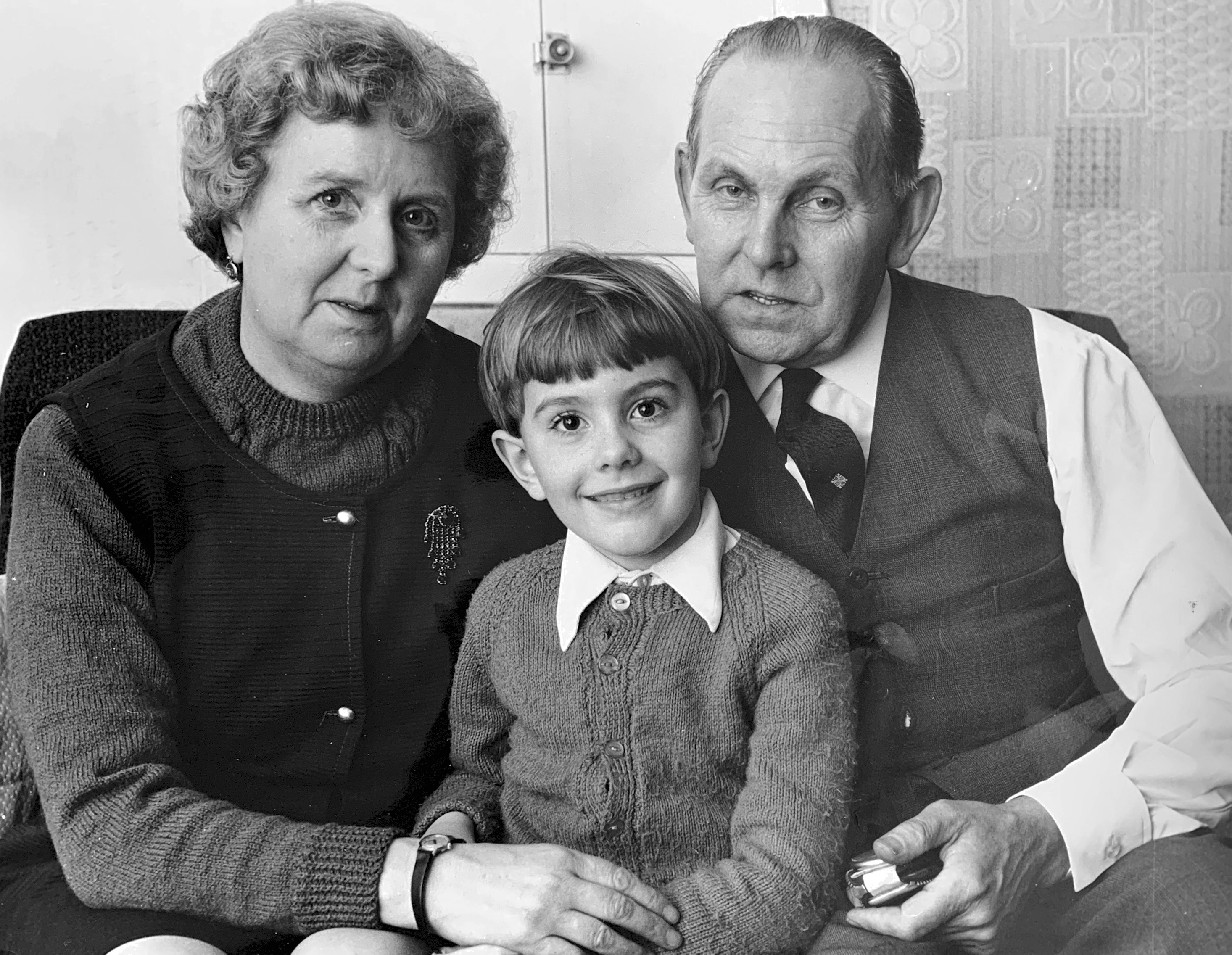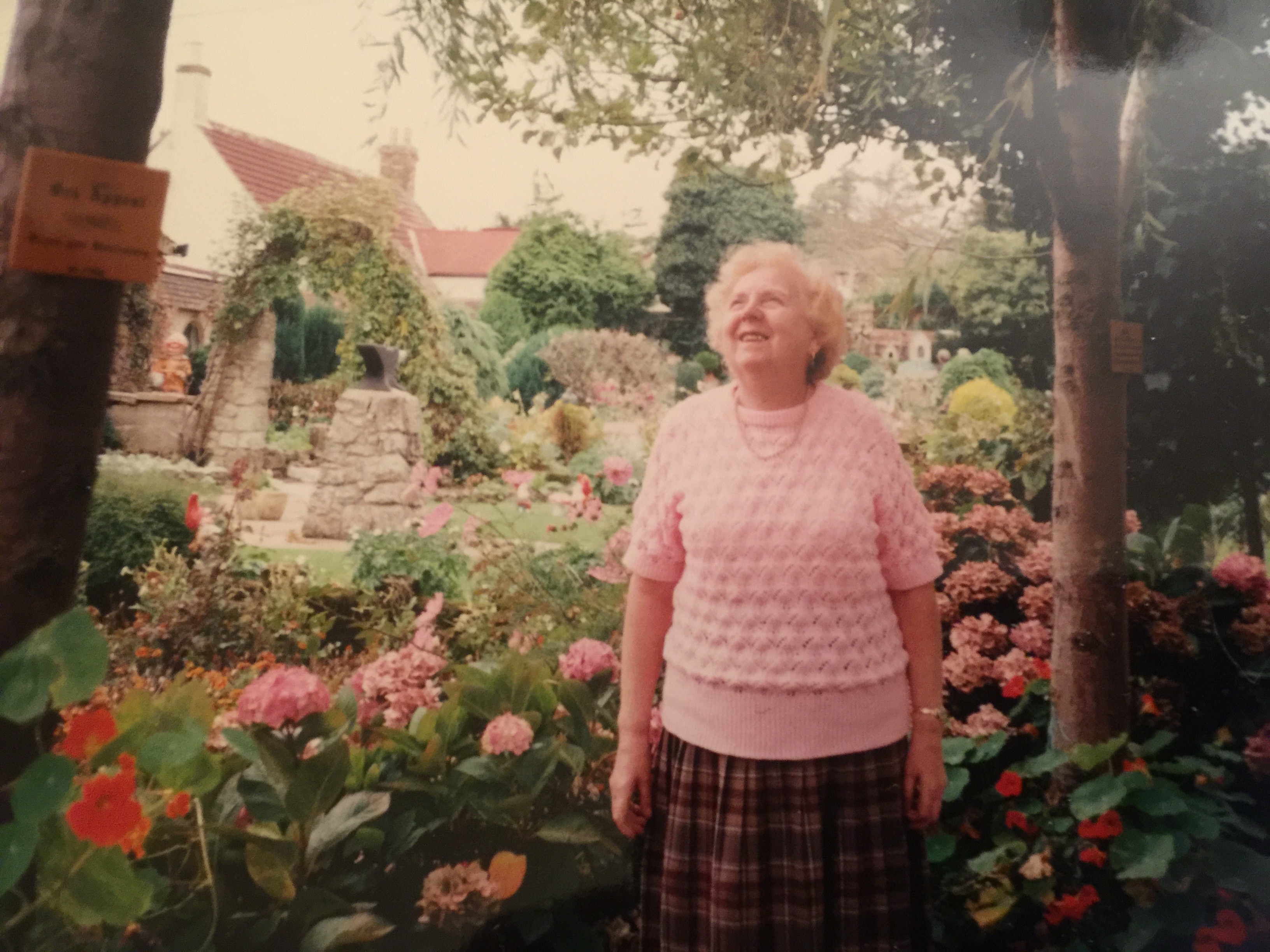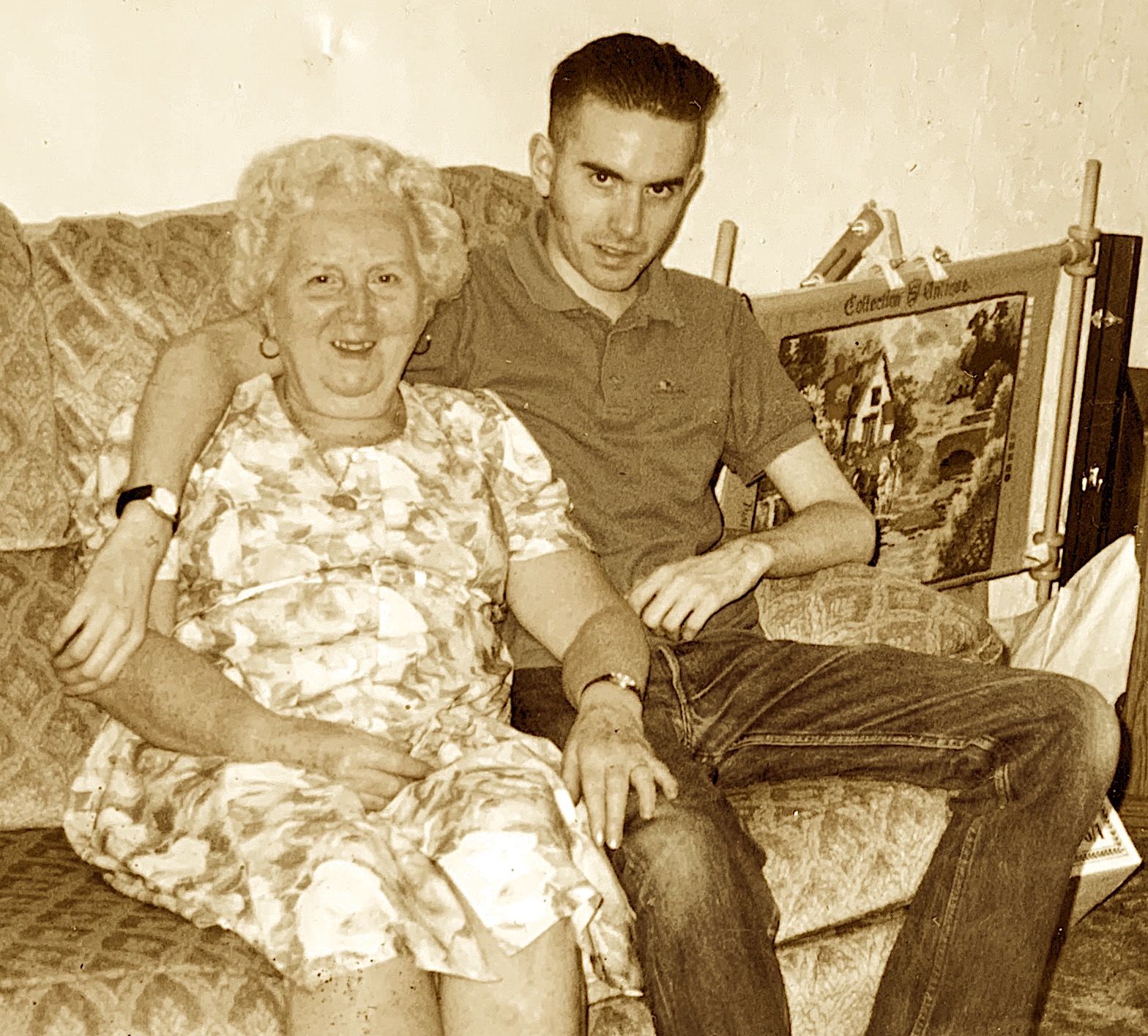Eulogy for my Mother
Note
I spoke this out loud at my mother’s funeral in 2007, and published it on my blog. It was a very cathartic experience at the time, and since I’ve been told that it’s helped other people in planning on what they might say in similar circumstances.
The Eulogy
My mother was born Maud Ethel Smith on 12 June 1922 in Dagenham. It
is hard for people of my generation and younger to imagine what life
might have been like then. It was a world which was just recovering
from The Great War. A world which did not imagine that another
"great war" was under two decades away. The Becontree area in which
my Mother was born and grew up was and still is the largest public
housing development the world has ever seen, good solid houses built
for families moving out of the slums in the East End, called "homes
for heroes" because of the war these people had just lived through.
The house which my mother grew up in had none of the things which we
now take for granted - no television, video or DVD, no phone, no
fridge, freezer, washing machine or microwave oven, no internet to
provide them with super-fast information on the outside world. Yet
somehow people coped without these things, and my Mother grew up as
the eldest daughter of James and Annie Smith. She had two younger
brothers, Harry and Alfred and two younger sisters, Betty and Julie,
who of course later became my uncles and aunts.
My mother left school at 14 and went to work in Farringdon up
London. For entertainment, she went to what was always one of her
favourite pastimes - going to the pictures. She told me that, as a
young woman, she would go to the pictures at least two times a week.
She could remember in good detail the plots of the most obscure
Hollywood films of the 30s and 40s, as could list now forgotten film
stars who were once her favourites. Certain films shone out for her,
and amongst the ones she liked the best were
Blossoms in the Dust, in which Greer Garson stood up for
illegitimate children; Gone with the Wind with its epic love
story, although I think my mother preferred Olivia de Havilland to
Vivien Leigh, although not Leslie Howard to Clark Gable, and
Mrs Miniver, Greer Garson again, heading a family struggling
through the second world war.
My mother, her family and her generation lived through Britain's
darkest and some would say finest hour. My mother told me of how she
went to work in Farringdon one morning only to find that the office
she worked in was no longer there. I can only dimly imagine the
horror of the Blitz and National effort which was total war. People
talk about the "spirit of the Blitz'' and perhaps that's just a
myth, but I once asked Mum if people ever thought they might lose
the war against Hitler, and she emphatically said "Oh no, we always
knew we'd win." Against that, Hitler never stood a chance.
My mother lived through extraordinary history, through a world war
and then the peace afterwards; first the austerity of continued
post-war rationing then the relative prosperity which followed.
Through all of this my mother, like so many of her generation kept a
strong sense of moral values, of right and wrong, a work ethic, a
vision of being true to your family and neighbours. Whatever the
intentions behind that great housing project in Becontree, the fact
is that it bred and nurtured people who possessed great inner
strength, fortitude and integrity.
My mother married her first husband - my father Charles Charlton and
their first home was on a caravan site, until they secured a council
house in a block of flats on the Waterloo estate in Romford, where I
was born in 1966. Both of my parents worked hard to give me a secure
and happy childhood. We had regular holidays and as soon as the
markers of the new prosperity came onto the market place, they
appeared in our home. We had family holidays every year. My mother
introduced me to the cinema and took me to see reissues of films she
knew and loved including her all-time favourite film,
The Sound of Music, which I always pretend not to like but
which always makes me cry. In taking me to the cinema and also on
occasional trips to the theatre, my mother implanted in me a love of
narrative storytelling which later grew into what I do as my trade.
My mother was a great reader, and read newspapers, magazines and
books. I think myself blessed to have had this role model of someone
in the family who liked to read. Books became incredibly important
to me, and the first books I saw were in my mother's hands.
My father died when I was nine, and my mother was left a single
parent. She coped with this with incredible pragmatism and
determination. She had worked when my father was alive - as she was
always an independent woman, financially as well as in mind - and
she continued to work so that I never wanted for anything. My
fondest memories of this period are of the holidays we shared. Our
favourite of these holidays was to Austria, where we saw in Salzburg
the locations used in The Sound of Music and also spent whole
days walking in the hills and paths - I can't say we climbed every
mountain but it certainly seemed like we tried.
I grew up and I left home to do, in the style of the post-1960s
generations, my own thing. I became a writer of scripts - an unusual
profession for someone from my background - but now I'm established
enough to say that I earn my living either from writing or from the
teaching of writing - through doing what I love - and I could not
have done that without the constant support of my mother, who stood
by me through thick and thin, helping me through many lean years. I
can't say my mother ever fully understood why I have to write the
things I do, but she always accepted that I do have to write them.
When I left home, my mum impressed me by making a new life for
herself. She met her second husband, Thomas Dixon, moved to Chadwell
Heath and found herself a new family with his children, his
grandchildren and his great grandchildren. Tom and my mum had a good
and active retirement life together, made the best of those years,
as each found in the other someone who appreciated life, and wasn't
going to sit in and let it pass them by when they could get out and
enjoy it. The Dixon family gave my mum the experience of an extended
family which she might not have had otherwise, and I'd like to take
this opportunity to thank them for adopting her and letting her
adopt them. I know they and she cared for each other very much. I
know that they will miss her, as will her friends and neighbours,
many of whom have spoken so highly of her to me over this past week.
One of my own friends once said to me, "I really like your mum, she
always has a sparkle in her eye."
If anyone were to ask me what my mum's legacy to me was; what I
learned from her; what she gave to me - I think my answer would be
to quote from my favourite poet William Blake. He says that "we are
put on earth a little space that we might learn to bear the beams of
love." Aside from all of the material support my mother gave me, my
mother taught me what it is to be loved totally and without
condition, to bear love's strong beams. I will never forget that,
and it will burn forever in me. It is the greatest gift that anyone
can give, be cherished eternally, and I remain forever grateful that
I had Maud as my mum.




